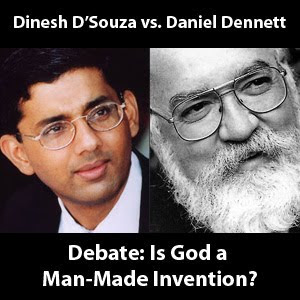
In this series of lectures provided by
biblicaltraining.org, Dr. Ronald Nash teaches on Apologetics and the History of Philosophy and Christian Thought. Now you have to go right to
biblicaltraining.org to get the audio. They do not allow direct linking to their audio files. (Also added to the
Ultimate Apologetics MP3 Audio Page.)
APOLOGETICS -
Lesson 1 - Introduction
Lesson 2 - What is Apologetics?
Lesson 3 - Worldviews in Conflict
Lesson 4 - The Law of Non-contradiction
Lesson 5 - Invalid Worldviews
Lesson 6 - Introduction to the Problem of Evil
Lesson 7 - Divine Omnipotence
Lesson 8 - Noetic Structure
Lesson 9 - Methodology
Lesson 10 - Objection
Lesson 11 - Evidentialism
Lesson 12 - Foundationalism
Lesson 13 - Natural Theology
Lesson 14 - The Existence of God: Background
Lesson 15 - The Existence of God: Arguments
Lesson 16 - The Existence of God: Cosmological Argument
Lesson 17 - Introduction to Possible Worlds
Lesson 18 - Possible Worlds
Lesson 19 - Middle Knowledge
Lesson 20 - Introduction to Miracles
Lesson 21 - David Hume
Lesson 22 - Two Central Miracles
Lesson 23 - Introduction to Is Jesus the Only Savior
Lesson 24 - Pluralism
Lesson 25 - Inclusivism
Lesson 26 - When a Baby Dies
Lesson 27 - The Concept of God
Lesson 28 - Open Theism
Lesson 29 - Attributes of God
Lesson 30 - Final Thoughts
HISTORY OF PHILOSOPHY AND CHRISTIAN THOUGHT
Lesson 1 - Introduction
Lesson 2 - Milesians
Lesson 3 - Heraclitus, Pythagoras, Parmenides
Lesson 4 - Worldviews
Lesson 5 - Naturalism
Lesson 6 - Introduction, Opposition
Lesson 7 - The Forms
Lesson 8 - Dualism
Lesson 9 - Rationalism
Lesson 10 - Appraisal, Creation, Tensions
Lesson 11 - Rationalism
Lesson 12 - His Life
Lesson 13 - Contrast, Substance, Causes, Categories
Lesson 14 - Incarnation
Lesson 15 - View of God, Psychology
Lesson 16 - Intellect
Lesson 17 - Law
Lesson 18 - Matter
Lesson 19 - Introduction to Hellenistic
Lesson 20 - Stoicism
Lesson 21 - Hedonism
Lesson 22 - Philo
Lesson 23 - Hebrews
Lesson 24 - Plotinus
Lesson 25 - Augustinian: His Life
Lesson 26 - Confessions
Lesson 27 - Augustinian: Faith
Lesson 28 - Augustinian: Evil
Lesson 29 - Augustinian: Pelagianism
Lesson 30 - Augustinian: Donatism
Lesson 31 - Augustinian: Skepticism
Lesson 32 - Augustinian: History
Lesson 33 - Augustinian: Knowledge
Lesson 34 - Augustinian: Illumination
Lesson 35 - Thomistic: Background
Lesson 36 - Thomistic: Faith
Lesson 37 - Thomistic: Arguments
Lesson 38 - Thomistic: Law
Lesson 39 - Modern
Lesson 40 - Kant: Understanding
Lesson 41 - Kant: Two Worlds
Lesson 42 - Kant: Response
Lesson 43 - Kant: Postmodernism
Lesson 44 - Hegel
Lesson 45 - Marx: Stages
Lesson 46 - Marx: Faces
Lesson 47 - D. Nietzsche
Enjoy.
 James White debates Dan Barker on the topic: Was Jesus a Myth? Video can be found over at Aomin.org. The debate took place at Newberg Christian Church. White's comments on Barker's "don't quote my book" objection is here, with video of the objection here.
James White debates Dan Barker on the topic: Was Jesus a Myth? Video can be found over at Aomin.org. The debate took place at Newberg Christian Church. White's comments on Barker's "don't quote my book" objection is here, with video of the objection here.


























